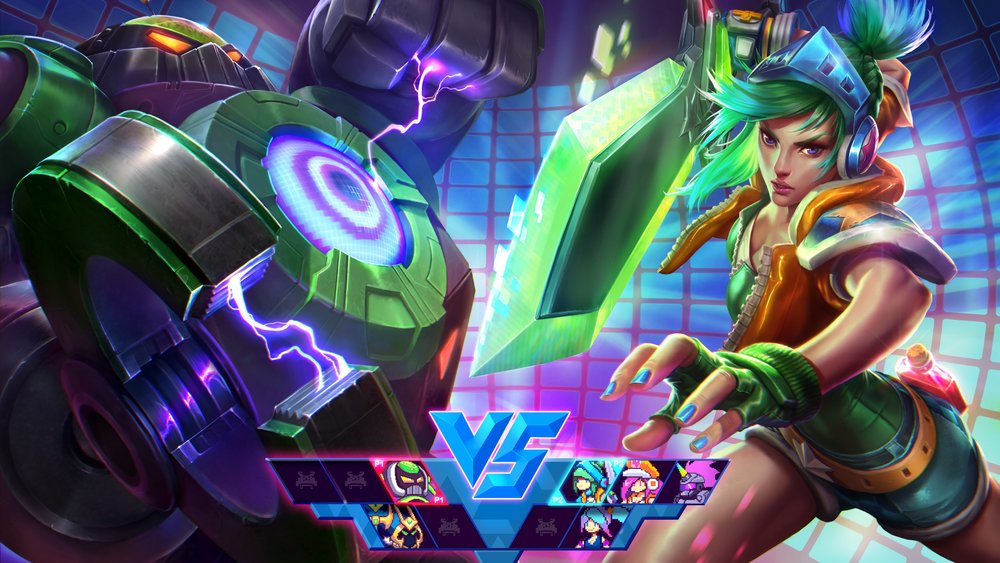This is the thing.
-
This is the thing. Sociability is *about people*. If your people are in an architecturally worse place or a place with a weirder business model, you may still choose to go be with them.
The alternative social internet has to get this and build itself to be really liveable and interesting for more people OR accept that it's going to be niche.
Building for niche, then scolding people who don't get it is understandable, but it's missing a workable theory of change.
Marco Rogers (@[email protected])
@[email protected] People might say "everybody's doing it". But that's the judgmental version. The reality is that people want to be where other people are. That *is* part of their interests. So it might more sense to think of it as people making tradeoffs. We can still be judgmental if we believe it's not the right tradeoff. I'm just saying that the network is only as valuable as the people who show up.

social.polotek.net (social.polotek.net)
-
berserk du soleilreplied to Erin Kissane last edited by
@kissane the op Marco replied to has such weird vibes haha, like the meme with the guy in the well
-
I write a lot about the things that the fediverse can offer that you can't get anywhere else—humane governance according to local norms, especially. I think those things are extremely good, and there are lots of people and groups who stand to benefit from those things.
But you still have to build things people like using, or they will leave/not join, and then the social part goes poof.
-
This is why I think all the energy spent hating other systems and being disapproving and dour about human nature would be much better spent focusing on figuring out what more people need from the fediverse and trying to make them—or make them visible, if they exist.

-
Erin Kissanereplied to berserk du soleil last edited by
@aetataureate I mean, not many people get into programming because they want to spend a lot of time thinking about the weird realities of the primate brain! I get that.
-
@kissane one of the effects of this, I think, is a structural filter that ensures that a good chunk of the fedi user population is people who put their values and the platforms percieved fulfillment of those over their previous social connections. That is not most people, and its definitely not any people who depend on those connections. If that makes sense.
-
@SarraceniaWilds It makes TOO MUCH SENSE.
-
@kissane 1000% this.
To take a small part of what you're saying and to be massively reductionist, as far as the technical stuff, goes:
RSS = Software-agnostic "what's happening with my website"
ActivityPub = Software-agnostic "what's happening with my website"
atproto = Software-agnostic "what's happening with my website"It would be way healthier if we framed the distinctions more like those between JPEG, DNG, and PNG.
-
@kissane there are cultural differences on the various networks, to be sure, but negotiating THAT is a conversation that actually goes somewhere.
Being someone who only uses PNG – and only communicates with people who also use PNG – because it's somehow a better technology? The sooner we can get past that particular phase of all of this, the better.
As @polotek started with, the reasons people choose one network over another are just so unrelated to technology it's not even funny.
-
@kissane @polotek the particulars of a given technology matter, but the best technologies are those that can be invisibly replaced and upgraded.
As someone who's worked on protocols, my biggest feeling of success comes when the thing grows beyond what my original imagination and/or capacity was, becomes something bigger, and no-one but some boffins notice.
Getting excited about technology can be great – getting religious about it? Can we not, please?

-
@kissane @aetataureate This! And especially those doing it for cheap or free!
That's why when you have cash you hire all of the social-facing elements that tell you how to meet your audience's expectations. And maybe even someone to prioritize your development roadmap in an audience-maximizing direction.
-
@kissane I’d suggest targeting the universities, for several, hopefully mutually supportive reasons.
Set up non-commercial governance and moderation in a duty-of-care environment
Differing but substantial bases for diverse feature development
Form a portable academic communication, writing, publishing network that becomes the default
Give students relief from the anxiety of surveillance & algorithmic socials
Those students will spread the fediverse as they disperse
-
How can you leave out WEBP!?!?!?!?! This exemplifies everything that's wrong with social media today! In this thread I shall ... (1/275)
But yes, I agree. The fixation on the protocols overlooks what's really important.
And Erin I unsurprisingly agree with your points too!
@[email protected] @[email protected] -
@kissane I have shared these before, because they're good and apply to good social media design. It's about fostering good interactions between people, not smoothly extracting value from users

Users as Co-creators: Player-centric Game Design
How a game design process suitable for Agile can be made user-centered and incorporate player feedback and real user input.如何让适合敏捷流程的游戏设计做到“以用户为中心”,并将玩家的反馈和由实际用户提供的信息融入其中。애자일 개발 환경의 게임 디자인 과정이 사용자 중심적이 되고, 플레이어 피드백과 실제 사용자의 조언을 통합하는 방식Como o processo de design de jogos adequado para o método ágil pode ser realizado centrado no usuário e também

User Experience (uxpamagazine.org)

Player Dynamics Design: Looking Behind the Curtain
The evolution of Player Dynamics design and how it helps people play well together in games
Riot Games (www.riotgames.com)
-
Dubi is here :Dambo8:replied to Erin Kissane last edited by
@kissane But you're saying what we build doesn't matter - what matters is that your people are there. How do we beat that? We can't force people to come here...
-
Erin Kissanereplied to Dubi is here :Dambo8: last edited by
@Dubikan That is not at all what I am saying, though. Read the whole thread? It's only a few posts long.
-
-
Dubi is here :Dambo8:replied to Erin Kissane last edited by
@kissane you're right, but there's a bit of a contradiction between how you state the problem in the first post, and the solution you propose, isn't there? Maybe I'm missing something
-
Ivy [_gay] Mae :fire_trans:replied to Erin Kissane last edited by
@kissane I've actually had a few irl friends try out the fedi recently and its been quite interesting to see just how much of a difference having someone actually guide them and get them set up helps
the empty timeline when you start is super duper intimidating and honestly without someone guiding them and recommending people for them to follow it would've been almost impossible for them to actually get situated here
-
Evan Prodromoureplied to Erin Kissane last edited by [email protected]
@kissane Is it really either-or?
Is the energy spent pointing out that venture-funded startups might not be working for the good of society as a whole actually transferrable to other work?
I think we can do both: talk about the superiority of open protocols as a societal good and also build great software and social experiences.
These enclosure startups want to frame the debate around UI. We need to keep it focused on governance.

